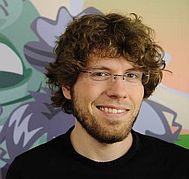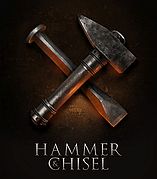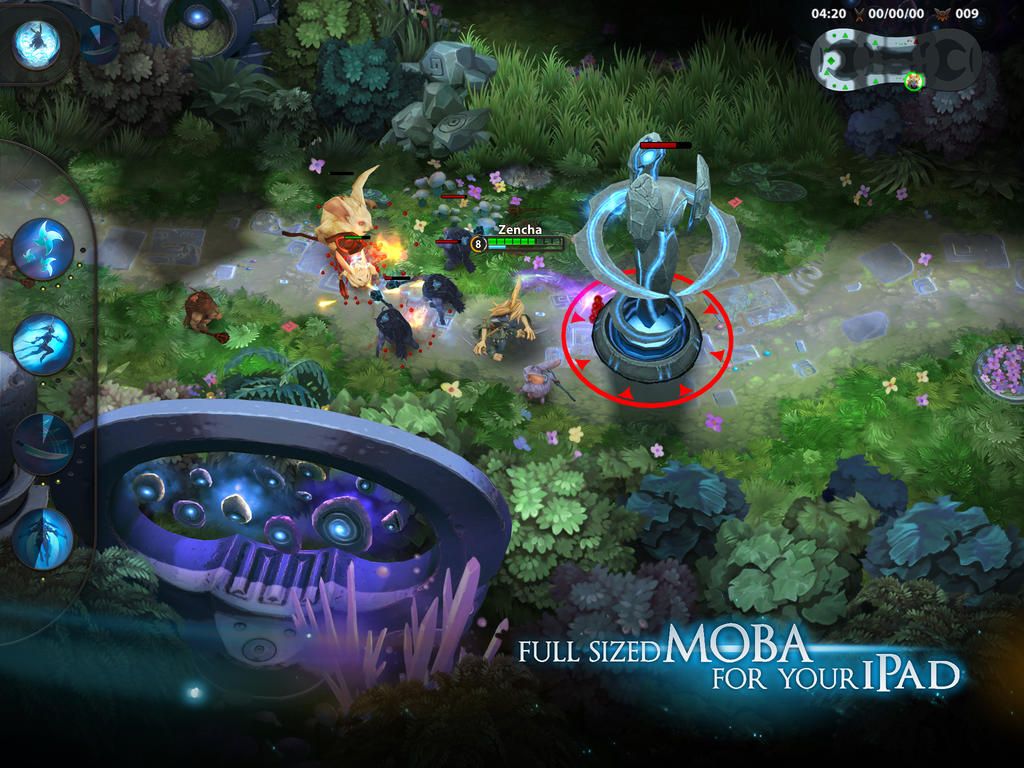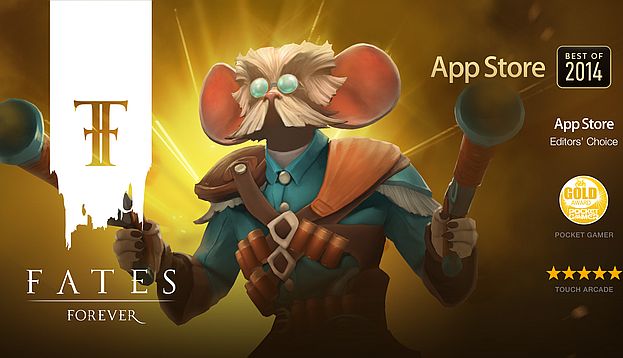The mobile game industry is moving out of its toddler years and into childhood, relatively speaking, and with that growth mobile games are getting more than just casual. A number of startups are betting their investor’s money on the belief that as the mobile game business grows and matures, more players will desire gameplay that’s richer, deeper, and more engaging. One of the startups dedicated to that proposition is Hammer & Chisel, the company started by OpenFeint founder Jason Citron, which today announced it has closed its Series B funding round from investors Tencent, Benchmark Capital and YouWeb’s 9Plus. Hammer & Chisel aims to be the first core gaming company to reach one billion players, with the fast-growing market of mobile devices reaching over 2 billion people soon.
Hammer & Chisel was founded in 2012 by Jason Citron, whose previous company OpenFeint was acquired by GREE for $104 million in 2011. With this latest round of investment, Hammer & Chisel has raised more than $8.2 million from top tier Silicon Valley VCs and investors like Tencent, Benchmark, YouWeb’s 9Plus, Accel, TWI, and IDG. Hammer & Chisel’s first title, the iPad only Fates Forever, was released last year, reimagining the MOBA genre on touch devices. Fates Forever has received awards such as “Apple’s Editor Choice” and “Best of iPad 2014.”
 Jason Citron
Jason Citron
“There are an estimated 100 million to 200 million core gamers right now – growing at a rapid pace. We think there’s tremendous opportunity to craft high end, respectful experiences tailored to the mobile play patterns of core gamers,” said Citron. “This investment paves the way for us to bring high end mobile games to emerging markets all around the world, which constitutes a substantial percentage of the future core gaming population.”
The [a]listdialy spoke with Citron about the investment, Fates Forever, and where mobile games and Hammer & Chisel are headed in the future.
How has the Fates Forever performed for you since its release? Has it met your expectations?
We launched Fates Forever last summer, over the July 4th weekend, and Apple gave us their Editor’s Choice award and we were featured on the front page. The project overall has really been an experiment for us. We’re a new company trying to bring a new type of hardcore gaming to mobile devices. The game has done well, but it hasn’t been a grand slam. On our journey of building an important gaming company, we started with something we thought would push the envelope a bit and we’d learn a lot from. If you look at other gaming companies that have been around longer and are very successful, the journey that all these companies take is they start by making games that are experiments to learn and grow on their way to building a massive success.
What size is your new round of funding, and what will it enable you to do?
The round of funding was led by Tencent. We met them a while ago, when we were doing the beta testing of Fates Forever. They are very interested in the MOBA space, and they are a huge distributor in China. They were interested in investing in us and building a relationship for high-end games on mobile devices. We’re not disclosing the size of the round, but it’s a multi-million dollar round that Tencent led.
The way that we look at the world is that mobile devices are just at the beginning of a multi-decade run. Who knows what will happen after that, but it seems conceivable in ten to twenty years every human being on the planet who’s not in poverty will own a smartphone. So we think there’s a tremendous opportunity to bring high end gaming to not only the current smartphone market,long term over the next twenty years. The money we’ve taken in this round will help us in our journey to bringing core games to a wider audience than we did with Fates Forever.

With tablet growth slowing, does this change your perceptions about the market opportunity or your strategy?
Sure it does. Fates Forever is tablet only right now, and when we started building the game a few years ago it looked like tablets were going to be the “next big thing.” That really hasn’t shaken out. We’re thinking of our next step more broadly in terms of mobile devices. The market conditions have definitely affected what we do going forward.
What lessons have you learned about multiplayer gaming on tablets?
The summary version of what we’ve learned is that the tablet gaming market how really high-end multiplayer games is still pretty early. The level of adoption and awareness of that type of content is very different than what it is on the PC. The PC people are used to sitting down and playing a game for hours, a really deep and immersive experience, and people don’t expect that of a tablet right now. Wone of the things we’ve found ourselves having to do is try and educate them people that they can get those kind of really deep experiences on tablets. The type of gamers that really enjoy high-end multiplayer games, it’s a different audience, and spreading that message is a big part of what we’ve learned we have to do.
What I really want to do with Hammer & Chisel is bring the kind of games that have had meaningful, deep impacts on us in our lives to the next billion gamers. Both you and I have spent the majority of our lives completely submerged in gaming culture, but the people who have smartphones and will be getting them in the next five to twenty years will have not experienced that. There’s an opportunity to bring the really meaningful, shared experiences we’ve had to them, and to make a first impression. Smartphone growth in the developed world has slowed, but in emerging countries it’s still 30 percent to 40 percent year over year growth. These are people to whom it’s their first computer, and this will be the first time they’ve experienced a videogame. That’s such a remarkable thing — it has an impact, and it’s great to be a part of that.

Where do you see mobile gaming, and especially tablet gaming, going from here? What is the biggest opportunity ahead, and what’s the biggest challenge?
The fundamental challenge over the next year is content diversity. As a player if you go to the App Store there is a ton of stuff. Apple and Google, every week, do a good job of promoting the new stuff for the week, but what usually happens is those games tend to not stick. On the top free and paid charts, for the last year and change, the top ten games have been relatively static. They don’t change. The ability for developers to get their content seen and played is so hard, it’s now going to affect the quality and the diversity of content. If you look at consoles and console gaming, and you map the trajectory over the last thirty years, the amount of diversity and experimentation in content from big-budget studios any more is nonexistent because it costs so much money to make something that stands out.
On the low end on console and PC you have the indie game phenomenon happening. None of those studios are successful in any measure similar compared to the ones at the top. Some of those indie studios have good lives, but if you look at the amount of money Call of Duty brings in compared to a hit game like Braid, there’s no comparison.
The bright light here is that because Apple and Google go out of their way every week to feature new content, that content does get pickup, and you will see games that come out of nowhere and do well. The trick is making a game that, from that pop, can sustain itself.

